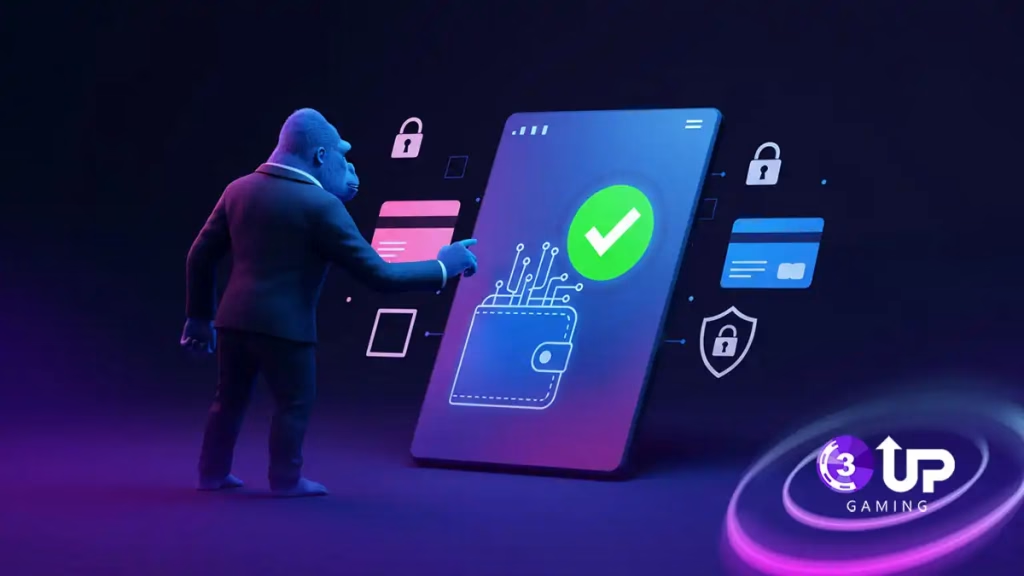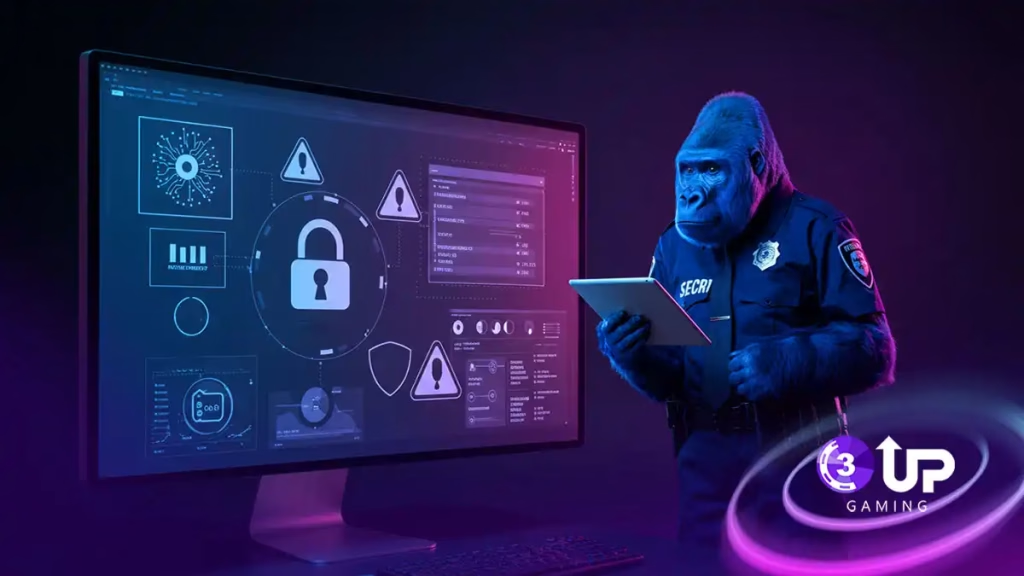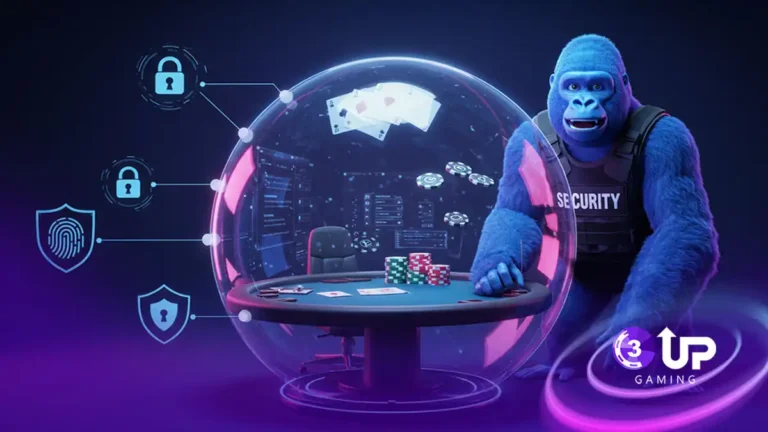How to Build a Secure Online Poker Platform? Advances in online poker platform technology have transformed the way that players play. Increased popularity of every online poker platform has also brought with it increased security threats. From data theft to cyberattacks and cheating bots, to fraudulent transactions, the threats are out there, and persistent.
For poker operators, developing a secure online poker platform is not simply a technological necessity; it’s a business imperative.
Without robust security measures, even the most sophisticated online poker platform software can fall victim to compromise, causing player trust to erode, triggering financial penalties, and damage to reputation.
In this detailed guide, we will delve into the fundamentals of poker software platform security, from the inclusion of RNGs to guarantee fair play to putting SSL encryption in place to safeguard payments, along with full KYC and AML compliance.
We will also cover how to track real-time gameplay, curb bot and cheating attacks, and perform frequent audits to make your platform future-proof.
Whether developer, entrepreneur, or investor, learning online poker platform security is the initial step to the development of a trusted and successful product.
How to Build a Secure Online Poker Platform
Building a secure online poker platform starts with choosing a reliable software provider that prioritizes data protection and fair gameplay. Security is the foundation of trust in online poker, so your platform must implement SSL encryption, firewall protection, anti-fraud systems, and RNG (Random Number Generator) certifications. Partnering with experienced developers or opting for a white label poker solution ensures that your platform follows industry best practices from day one, protecting both user data and financial transactions against breaches or manipulation.
Beyond technical safeguards, operational security plays a major role in platform success. Implementing KYC (Know Your Customer) procedures, secure payment gateways (including crypto options), and real-time monitoring tools will enhance user safety and compliance with legal standards. A secure online poker platform also benefits from regular software updates, continuous audits, and dedicated customer support. By investing in robust security from the ground up, you create a trusted environment that attracts loyal players and helps your brand grow in the competitive online gaming market..
Greater Risks Involved in the Online Poker World

The rapid development of online poker has also opened a door to large-scale cyberattacks. Online poker websites are relentlessly attacked by cheating applications, scams, and cybercriminals, compromising player data, fairness of games, and business image.
Why Strong Security is a Must
Secure poker sites are those that assure fairness of play, safeguard confidential information, and build player confidence in the longer run.
Without effective poker security programs, even a carefully crafted web-based environment of gaming can fall victim to data compromise, financial loss, or legal issues.
Players are expected to have privacy, security, and fairness, each of which is founded on robust security measures. In fact, maintaining strong online poker security is the foundation of building long-term player trust and loyalty.
Today, security in poker is no longer a nicety but the key to a prosperous poker company. From SSL encryption to anti-cheat, to KYC requirements, every aspect of security is of the highest importance to ensuring a poker session is safe and enjoyable.
Critical Ingredients in Securing a Poker Software Architecture
Creating a secure online poker game that is both stable as well means more than just writing good code. It’s also about setting up the right processes around player security and game integrity. Let’s see the most important factors that make poker software secure.
Random, Fair Dealing
Any secure poker software begins with a single promise: no one can predict the next card. A tested, lab-certified random-number generator reshuffles the cards thousands of times per second.
That thin layer of math turns code into fairness, the same way a seasoned dealer’s shuffle does in a brick-and-mortar room.
Locking Down the Data
Cards aren’t the only thing worth protecting. Logins, chat logs, and cash-out details ride through SSL tunnels so deep that even a determined eavesdropper ends up with scrambled noise.
Good operators also salt and hash passwords, limit database access, and rotate keys—practical steps that move online poker security from marketing claim to daily habit.
Watching the Tables
Bots and collusion don’t announce themselves; they slip in quietly. Real-time monitoring tools flag odd betting rhythms, twin IP addresses, or in-human click speeds, then hand the case to a human supervisor.
By pairing machine alerts with human judgment, the platform keeps play honest while safeguarding player privacy.
Utilization of RNG (Random Number Generator) for Ensuring Fair Play
Preserving fair play standards and rules is important for every online poker room, and it all starts with the RNG. RNG is a software application that automatically puts cards into decks and deals them as a real dealer would.
What Is RNG?
Online poker rooms with a good reputation have certified RNG systems that pass tests that assure fairness because RNG creates random numbers which are outcomes based on certain results and are involved in every poker game to decide how the cards will be dealt.
Importance of RNG
Every player should be confident that every hand will be dealt in every round without any form of manipulation. With the correct application of RNG, all players will have the same opportunity which reinforces player trust in an online poker platform.
Implementation of Secure Data Protocols and SSL Encryption

Many of these online poker platforms have stringent policies on user data and transactions on their sites. SSL (Secure Sockets Layer) encryption makes sure that the communication on the player’s end or on the poker server’s side is completely secure and private.
What is SSL Encryption?
SSL makes sure that the data that is being transmitted across the web is well protected from malicious entities. This includes sensitive login credentials, personal information, and payment details.
Why Secure Data Protocols Matter
Combination of these secure data protocols along with SSL does provide a safeguard from cyber attack or interception. It also enhances the trust from the player that their data will be protected when making deposits, withdrawals, or even playing the game.
Building Player Confidence
Providing protection in terms of encrypting for data being stored or held enables an online poker platform to offer safer gaming experiences, protecting enthusiasts and the operators from the risk of a potential security breach.
DDoS Shielding and Server Security
Cybersecurity is crucial for online gaming sites especially those games that involve monetary transactions such as online poker. One form of DDoS attack involves players flooding poker servers with bot traffic which results in the computers getting DDoS attacked.
Highly efficient DDoS shielding endorsement is critical for an effective DdoS attack shield. Shielding from DDoS attacks will keep servers free and ready for real poker players at all times.
What is meant by “DDoS Protection”?
DDoS shielding is the process of authenticating users and blocking unnecessary traffic whilst preserving the necessary bandwidth.
A fundamental need of these poker clubs is that they do not suffer downtimes that come with implementation of effective shielding and always are at the disposal of real players.
Importance of Server-Side Security Measures
Firewalls, patches of software, and intrusion detection systems are also important. Proper server shielding includes all these. Beyond DdoS shielding these methods counter hacking attempts to the platform and beyond shielding the server.
A combination of DDoS shielding and via server firewalls, the poker server maintains reliability hence guards user data against intruders while also keeping the integrity of the games intact after tackling the issue of unconsented access.
Why KYC and AML Matter in Poker Platforms
In poker platforms, KYC and AML are vital for several reasons. Concerning online poker security, non-negotiable is a guarantee of legitimacy and trust.
Know Your Customer (KYC) and anti-money laundering (AML) follow these steps: They help systems to check player identities, spot questionable activity, and satisfy world standards.
How AML and KYC really function
Typically under a secure poker program, KYC procedures require verification of identity via utility bills or passport. Real-time monitoring of transactions under AML procedures helps to detect suspicious activity that could point to money laundering.
Utilizing KYC and AML compliant poker tools, operators build a transparent and honest secure poker environment. These checks also prevent underage gambling and guard against the misuse of stolen credentials.
Better placed to obtain relevant poker program license, systems prioritizing these qualities guarantee their long-term legitimacy and reduce legal issues.
Safe Payment Integration for Deposits and Withdrawals

Occasionally, players on an online poker platform deposit and withdraw real money. This transforms reliable poker dealings into the foundation of platform integrity. Apart from leaking customer data, a payment security breach destroys brand trust.
incorporating reliable payment methods
From e-wallets and credit cards to crypto poker transactions, a safe poker platform should accept a range of supported payment options. To guarantee encoded and secure transactions, these gateways have to adhere to PCI DSS (Payment Card Industry Data Security Standard).
Improving Safety and User Experience
Rapid processing times, cheaper transaction expenses, and little downtime would help to streamline the process. Including these SSL encrypted poker systems offers even yet another layer of protection.
Strong, secure poker payouts finally help to create user loyalty and confidence, both of which are vital elements for continuing platform success.
Enhancement of account integrity
User accounts are sometimes targeted by hackers on an online poker platform; thus, strong protections are quite essential. Beyond a username and password, two-factor authentication poker adds a vital degree of security.
How 2FA works on Poker Websites
Two-factor authentication typically requests customers in a secure poker computer environment to verify their identity by means of an additional measure—either a code emailed or texted to their mobile phone. Even if login credentials have been stolen, this introduces complexity of illegal access.
Top Two-Factor Authentication
Features like login alerts, session timeouts, and IP monitoring help to further safeguard user accounts. These instruments significantly reduce the possibility of account theft and fraud when employed together.
Systems may use strong two-factor authentication poker strategies to increase internet poker security, obtain player trust and regulatory legitimacy.
Monitoring and Anti-Cheat Systems for Real-Time Security

Fair Play Begins with Good Observation. Nobody wants to be seen as working against a fixed deck. So fair play on an online poker platform is mostly a matter of smart real-time monitoring.
From abnormal player behavior to weird win rates or poker-bots in action, these mechanisms are always watching and ready to intervene before things get out of control.
AI-Based Monitoring Tools
Modern real-time monitoring technologies use artificial intelligence and machine learning to detect cheating tactics. These tools compare player actions against massive datasets to spot anomalies and respond instantly.
Bot and Collusion Detection
Anti-cheat poker systems are specifically designed to identify automated behavior or coordinated team play. Systems can alert users, deactivate accounts, or alert them for more research once something is discovered.
Real-Time Protection Builds Trust
Thanks to these layers of real-time defense, players can focus on enjoying the game rather than worrying about foul play. It’s not just about stopping cheaters—it’s about building a safe, trusted environment that keeps people coming back for more.
Why Security Audits Matter
Running an online poker room is not much different than running a live card room. Would you visit a building where no one has taken the time to ensure that the locks were examined for decades? Not very likely. It is the same with online sites.
Regular security audits enable the team to dig deep into every detail of the system—right down to the background code and database settings.
These frequent checks in advance foresee problems in time, before tiny issues become mammoth headaches. Therefore, the platform is safe and runs in a trouble-free manner for all.
Updates: Small Fixes, Big Difference
The villains don’t have a schedule, and neither should your patches. Instead of waiting for big updates, it’s smarter to deploy small patches on a regular basis to plug new security holes as they happen.
Sometimes it’s just a quick tweak or a stronger encryption patch. Yes, those update reminders may pop up at inopportune moments, but to ignore them is like not locking the front door just because the lock creaks.
Allowing the Experts to Break It (Before Hackers Get a Chance)
At times, poker sites employ seasoned ethical hackers to test the system in the same fashion that real hackers would. These specialists don’t just do scans—they think outside the box, finding flaws and devious loopholes a hacker would use.
First a bug, then a technical flaw—it’s their job to find it before any hacker even could. It’s stress testing—but one tailored specifically for security.
The Quiet Victory
When timely maintenance, regular audits, and skilled penetration testing all come together, it’s not glamorous—but users will adore it. The site operates more efficiently, feels safer, and earns trust. In the realm of an online poker platform, that enduring trust is the real jackpot.
FAQ
1. What makes an online poker platform secure?
Security in online poker goes beyond just passwords and firewalls. It’s about creating a space where players feel protected—through constant system checks, trusted software, and responsible data handling.
A secure platform keeps everything running smoothly in the background so users can focus on the game, not on what could go wrong.
2. How do I ensure fair gameplay for all users?
Start with a truly random shuffle, then layer on smart monitoring tools to catch suspicious behavior early. Encourage users to report unfair play and take those reports seriously. When the rules are applied evenly and consistently, players trust the online poker platform—and that trust is what keeps your tables full.
3. Is SSL encryption enough for player data protection?
SSL encryption is essential, but it’s not the whole picture. It protects data as it moves, but what about when it’s stored?
Combine SSL with secure databases, limited admin access, and regular security reviews to really keep user data safe. It’s about building a system that’s strong from all angles.
4. What kind of license is required for a legal and secure poker site?
Licensing depends on the region, but trustworthy platforms usually go through respected regulators like the UKGC, MGA, or Curacao.
A valid license means a site meets strict rules for security, fairness, and financial responsibility—giving players peace of mind.
5. Can I integrate secure payment gateways with crypto support?
Absolutely. Today’s top platforms let players use everything from credit cards to cryptocurrencies. Just make sure the payment gateways you choose support encryption, fraud checks, and fast transaction handling.
With the right setup, you’re offering players both flexibility and peace of mind—no matter how they want to pay.
6. How can I prevent bots and cheating in poker games?
Use tools that analyze player behavior in real-time. If someone plays like a robot or two accounts move in sync, your system should flag it. But don’t stop there, educate your players, respond fast to reports, and make it clear: cheating ruins the fun, and it won’t be tolerated.
7. What role does RNG certification play in poker software security?
It’s the foundation of fair play. A certified RNG proves that your cards aren’t being stacked or manipulated.
Third-party labs run the tests, and when you pass, players know the deal is legit. Without that stamp of approval, even the best-looking online poker platform loses credibility fast.


